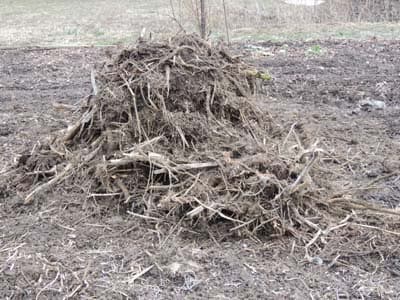Using Garden Compost as Mulch

About Using Compost as Mulch
Indeed, there is no better mulch for use around your plants, than properly decomposed, organic garden compost. Many gardeners consider it the best, and only mulch for their plants. Using compost as mulch provides all of the benefits of any other mulch. In addition, it is organic. So, it feeds your plants. As it breaks down, it conditions your soil. And here’s another great benefit…… it’s free!
The only downside to using compost as a mulch is that it breaks down into the soil somewhat quickly. You may have to apply for a second application during the growing season. In the vegetable garden, many gardeners see the quick breakdown of compost as an advantage, as cleanup in the fall is easier….. just till the remaining compost into your garden. Or, give some of the leftover to an appreciative gardening friend.
Any organic mulch like wood chips or cocoa shells can also be composted. However, composted mulch is likely from one ingredient, like wood chips. As a result, it has less diversity than what comes from your compost pile. compost. So, the range of micronutrients will be more limited.

How to Use Compost as Mulch
Use nutrient-rich garden compost around all of your plants, like you would with any other mulch.
First, weed around your plants. Of course, put those weeds into your composter.
Then, apply a thick layer of compost around the plants. As long as the materials in the compost have decomposed, you can spread the compost right up to the plant’s stem.
Apply a second layer later in the season, as needed.
That’s all there is to it!
Garden Tip: Importantly, make sure the materials are properly decomposed. Raw compost is “hot” and can harm your plants. Proper decomposition will kill weed seeds and pathogens in the raw materials. More on How to Compost
Related Articles
People who like this article will also like:
How to Compost – Learn the A to Zs of the process.
Please support our site. Shop for:
- rmmatthews100@hotmail.com
- 585-721-6528
- Rochester, NY
©1999-2024 GardenersNet.Com, All Rights Reserved

